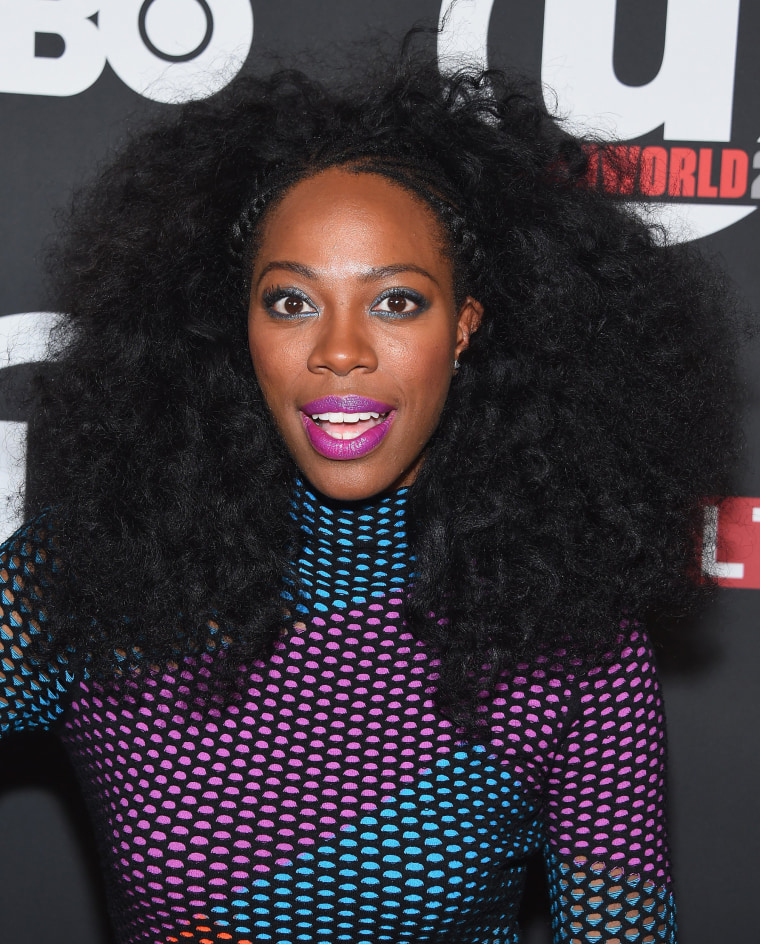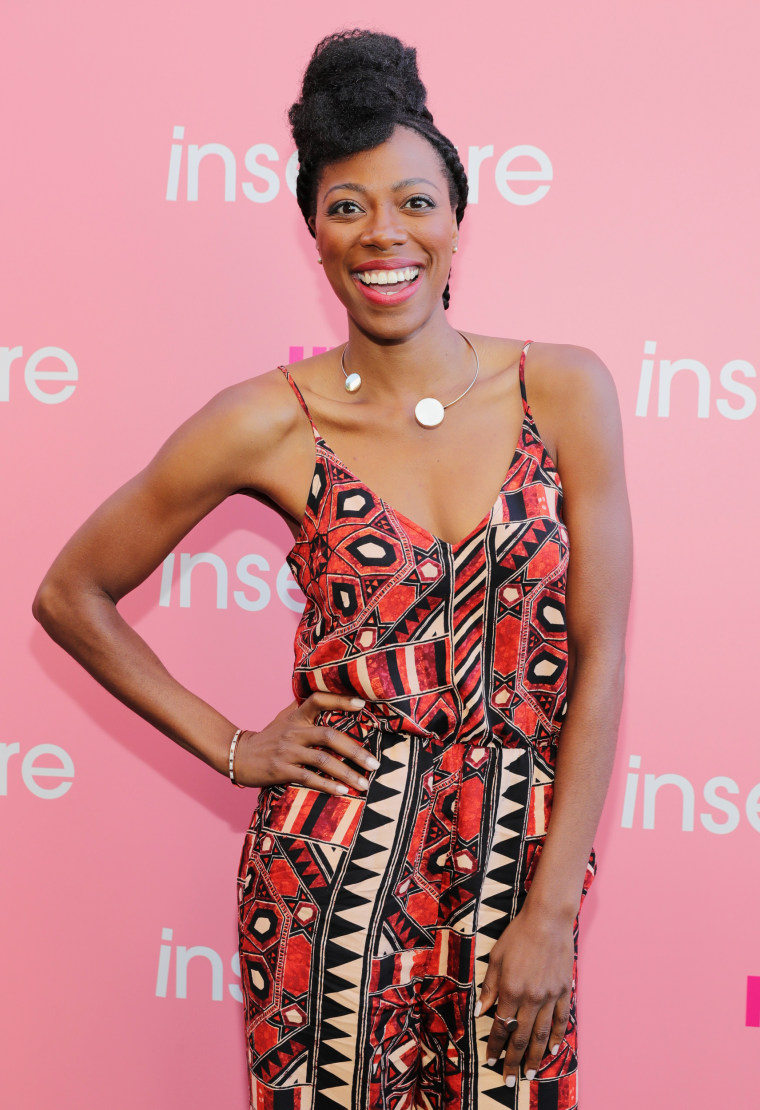Actress Yvonne Orji is still processing the early, mostly positive, reaction to her new series on HBO — "Insecure" — which stars Internet sensation Issa Rae and focuses on black women in their late twenties navigating personal and professional struggles from an accessible seriocomic perspective.
The show, co-produced by former late night host Larry Wilmore, officially debuts on October 9th, but HBO decided to roll out its first episode early online. Besides what she calls the inevitable "lazy comparison" that some critics are making to HBO's other female-centric hit "Girls," Orji's eyebrows were raised by one online troll who lamented that the show proves that the premium cable network has "now become BET."
"If white people loved black people as much as they love black culture, the world would be a different place," Orji told NBC News, echoing remarks made last year by "Hunger Games" actress Amandla Stenberg.
When it comes to television it certainly seems like there is a newfound appreciation for people of color. This year's Prime-Time Emmy Awards occasionally felt like a self-congratulatory victory lap for the industry as it celebrated the medium's diversity. And coming on the heels of Donald Glover's "Atlanta," another critical darling praised for its authenticity, "Insecure" also appears to be the beneficiary of mainstream adulation.
Related: Emmys Honor and Celebrate Diversity, in Contrast of Oscars
But as far as Orji concerned, don't call this a comeback because black television has been here for years.
"I think sometimes the industry has amnesia to be honest," she said. "There was a golden age in the '90s, where there were a lot of diverse shows, you had 'Martin,' you had 'Fresh Prince,' the whole 'TGIF' line-up ... I still know people who say 'A Different World' made me want to go to college or 'Girlfriends' was just like my friends."
"Those shows made a lot of money, got a lot of good ratings, but then, suddenly, they disappeared, and then it was like 'we just don't know if black shows work,'" she added.

The great reverse migration of black-led television shows to the margins of the entertainment industry has been one of the enduring mysteries of the medium for years. And while network television has slowly started to re-embrace stars of color, the roles have sometimes been more insurmountable than purely aspirational.
“I think there’s a part of every woman who wants to crush it like ['Scandal''s] Olivia Pope, who wants to be flawless and amazing, but there is a process to get there,” said Orji.
In some ways, "Insecure" is the anecdote to the more exceptional portrayals of the black female experience which currently pepper the TV landscape (here's looking at you Cookie Lyons). It conveys what creator-star Issa Rae has called "the prequel to black girl magic."
Related: If Big, Natural Hair is In, Why Don't We See it On Television?
Rae plays a 29-year-old (also named Issa), self-described “token with all the answers” at a fictional, predominately white, liberal, do-gooder nonprofit based in Los Angeles called "We Got Y'all." She and her best friend Molly (played by Orji) are both beautiful and successful, but also perpetually unsatisfied with their love lives.
The charming and hilarious first episode covers double standards in interracial dating, the intricacies of text message interpretation, and culminates in a raunchy freestyle rap performance that makes intimate reference to a specific part of the female anatomy.
What's groundbreaking about the show — even though it shouldn't be — is that it all feels relatively normal and entirely plausible, which, according to Orji, is part of the plan.
"This is a show where you really do have two regular black women, they have regular relationships, they have regular conversations," she said. "That’s the freedom that we get with this show."
"We've had shows forever about white people just being able to 'be' — to be regular, to be amazing, to be 'run of the mill' or awkward," she added. "But then when you have black people we have to be super sexy ... all the guys have to have six packs."
And while some people may have a problem with a show starring black women embracing insecurity as a theme and title, Orji believes "the most free a person can be is when they are just allowed to be represented in their flaws and in their prestige in media."
Orji knows a little something about how much images and representation can matter. She admits that in her native Nigeria, many perceptions of what it means to be a black American are based on the often flashy and exaggerated imagery that is commonly found on cable television.
Her hope is that the potential popularity of "Insecure" won't necessarily breed imitators, but will instead make a case for more nuanced and humane portrayals of black culture, which, of course, will not be able to please everyone.
"We can't be all things to all people," said Orji. "But hopefully the show allows people to not only build on the success, but also to keep the authenticity and create new stories."
